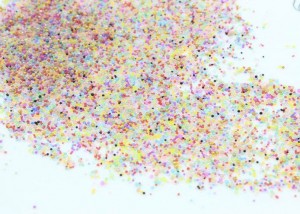 When plastic was first invented it was a new wonder-product that could take the place of just about any wooden or metal and was much cheaper, but then we became more educated and interested in what was happening to our natural resources and to what happens to all that plastic when it is no longer in use, since it does not biodegrade.
When plastic was first invented it was a new wonder-product that could take the place of just about any wooden or metal and was much cheaper, but then we became more educated and interested in what was happening to our natural resources and to what happens to all that plastic when it is no longer in use, since it does not biodegrade.
First plastic shopping bags were banned in many countries, and now it is the turn of plastic microbeads which seem to have become all the rage in personal care products such as shower gels and face-scrubs.
While these tiny microbeads may make your skin look and feel great as they exfoliate it, some of them are less than a millimetre wide which makes them easy to miss by water filters once they have been rinsed off. This means that they inevitably end up our oceans where they wreak devastation on marine life.
Microbeads have already been banned in the United States, and the UK government is considering doing the same since current evidence has revealed that they are being ingested by sea-dwelling creatures at the bottom of the food chain and it is not known what wider implications across the entire food chain.
Richard Thompson, Professor at Plymouth University’s School of Marine Science and Engineering, has previously revealed that one third of the 504 fish tested in the English Channel were found to have plastic in their digestive tract. This and other research has led to the Environmental Audit Committee currently sitting to begin hearings on microplastics.
According to Sarah Mukherjee of the Water UK Director of Environment, “water companies work hard to help maintain rivers, lakes and streams that are abundant with life, and to make sure that the fantastic and unique wildlife of the British Isles can thrive. Evidence suggests that the tiny bits of plastic in some cosmetics and shower gels can get through companies’ systems and into the environment, and so we will follow the government’s decision with interest.”
Get water coolers and water cooler accessories from Living-Water.





